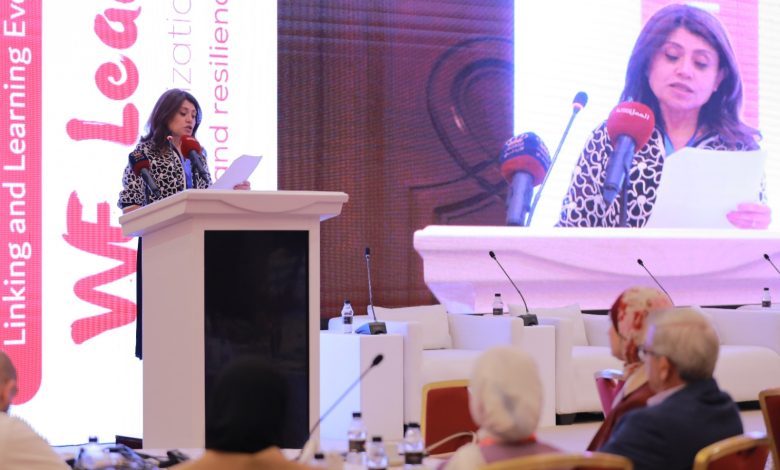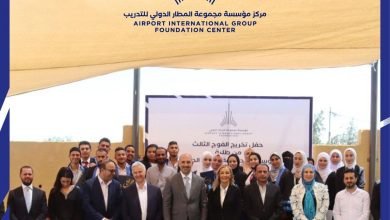Linking and Learning Conference “We Lead Towards Realization of SRHRs and Resilience”

Jordan Daily – Jordan has made significant legislative advancements aimed at promoting the sexual and reproductive health and rights (SRHR) of women and girls.
In recent years, Jordan has implemented key laws and regulations that prioritize the well-being and empowerment of women and girls in the realm of SRHR. For example, the adoption of the Family Protection Law was the start of creating an enabling legislative environment that promotes women and girls’ SRHR.
Additionally, the recent implementation of the National Strategy for Women in Jordan 2020-2025 along with its action plan and the endorsement of the National Strategy for Reproductive and Sexual Health 2020 – 2030, further demonstrate the government’s commitment to addressing SRHR issues.
Nonetheless, the successful implementation of these strategic steps necessitates enhanced connectivity and integration with prevailing health laws in the Kingdom. Equally significant is the need to effectively coordinate efforts with Civil Society Organizations (CSOs) that specialize in SRHR issues. By fostering improved coordination between the government and various stakeholders to strengthen the expansion and progress of SRHR initiatives.
Civil Society Organizations (CSOs) are essential actors in advancing sexual and reproductive health and rights and actively promoting access to accurate information and vital services that empower individuals to make informed decisions concerning their sexual and reproductive well-being. The significance of CSOs’ contributions to the SRHR landscape is multifaceted, encompassing various key functions, including service provision, education and awareness-raising, empowerment of marginalized communities, and monitoring and ensuring accountability. CSOs have the capacity to bring attention to perceived injustices in society and respond to the growing challenges in SRHR, even in the face of limited funding, social backlash or resistance, and legal barriers.
In this context, the We Lead Linking and Learning Conference held between 28-29 May 2023, aimed to bring together various local and national civil society organizations, advocates, the Ministry of Health, governmental institutions, national bodies, relevant stakeholders, key players in the field of SRHR and members of the We Lead Consortium and Community of Action.
During the event, participants engaged in meaningful discussions regarding the prevailing state of access to SRHR, emphasizing the significance of inclusive policies and mechanisms in this domain.
They highlighted the crucial role played by CSOs in addressing the mounting challenges encountered in the pursuit of comprehensive SRHR access. Notably, the focus was placed on empowering women and girls to make responsible and well-informed decisions concerning their sexual and reproductive well-being. In addition, the participants were able to share knowledge, good practices, tools and strategies that can support generating actionable recommendations, and foster inclusive policies and mechanisms while establishing sustainable partnerships with the government.
“This learning event is an opportunity to consolidate the efforts of civil society to ensure women’s full and effective enjoyment of Sexual and Reproductive Health and Rights” says Fotouh Younes the Executive Director of Arab Network for Civic Education – ANHRE.
This Linking and Learning Conference was organized as part of the We Lead Project, an innovative five-year programme launched in 2021 by Hivos and five other consortium members: Positive Vibes, Restless Development, FCAM, FEMNET, and Marsa. This Programme is funded by the Dutch Ministry of Foreign Affairs and strives to empower, strengthen and amplify the voices and position of young women whose sexual and reproductive health and rights are neglected the most.
Haneen Alfayoumi, the Community of Action Facilitator highlighted that “the programme puts young women from 19 – 35 years old in the driver’s seat, connecting them with each other in what we refer to as Communities of Action “COAs”. In these spaces, they share knowledge, experiences, and ideas, and learn from one another, while they also develop joint strategies to improve their SRH-R. Adding that through the programme “we accompany and coach COAs as they work towards achieving the legal and policy changes, they have targeted.”
“The program is implemented in nine countries in Africa, the Middle East and Central America. The We Lead consortium consists of six civil society organizations (Positive Vibes, Restless Development, Marsa, FEMNET, the Central American Women’s Fund, and Hivos). The Dutch Ministry of Foreign Affairs is also part of the partnership. Hivos is the lead party. The five-year program is funded by the Dutch Ministry of Foreign Affairs, under the SRHR Partnership Fund, which is part of the Strengthening Civil Society subsidy framework. ” says Nyambura Gathumbi the WE Lead program manager at HIVOS

